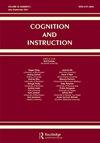详述本科微积分学的种族化、性别化机制及微积分课堂教学
IF 2.3
1区 心理学
Q2 PSYCHOLOGY, EDUCATIONAL
引用次数: 29
摘要
摘要在黑人学生、拉丁美洲学生和白人女性中,本科数学教育可能会以令人沮丧和边缘化的方式进行。尤其是微积分前课程和微积分课程,在STEM(科学、技术、工程和数学)的数学课程和追求中,充当了守门人,导致了种族化和性别化的流失。然而,学生对这些数学入门课程教学的看法尚未被系统地研究为造成这种流失的原因。本文介绍了20名历史上被边缘化的学生对微积分前和微积分教学的看法的研究结果,以记录他们认为令人沮丧和边缘化的特征。我们的分析揭示了不同种族和性别认同的学生如何在数学入门课堂和STEM领域报告刻板印象以及代表性问题,以塑造他们对教学的看法。这些看法指出了教学中三种种族化和性别化机制的运作:(i)创造不同的参与和支持机会,(ii)限制来自同一种族、同一性别同龄人的支持,以管理教学中的消极因素,以及(iii)激活关于谁属于STEM领域的排斥思想。我们利用我们的研究结果来提出对本科生数学教育研究和实践的启示。本文章由计算机程序翻译,如有差异,请以英文原文为准。
Detailing Racialized and Gendered Mechanisms of Undergraduate Precalculus and Calculus Classroom Instruction
Abstract Undergraduate mathematics education can be experienced in discouraging and marginalizing ways among Black students, Latin* students, and white women. Precalculus and calculus courses, in particular, operate as gatekeepers that contribute to racialized and gendered attrition in persistence with mathematics coursework and pursuits in STEM (science, technology, engineering, and mathematics). However, student perceptions of instruction in these introductory mathematics courses have yet to be systematically examined as a contributor to such attrition. This paper presents findings from a study of 20 historically marginalized students’ perceptions of precalculus and calculus instruction to document features that they found discouraging and marginalizing. Our analysis revealed how students across different race-gender identities reported stereotyping as well as issues of representation in introductory mathematics classrooms and STEM fields as shaping their perceptions of instruction. These perceptions pointed to the operation of three racialized and gendered mechanisms in instruction: (i) creating differential opportunities for participation and support, (ii) limiting support from same-race, same-gender peers to manage negativity in instruction, and (iii) activating exclusionary ideas about who belongs in STEM fields. We draw on our findings to raise implications for research and practice in undergraduate mathematics education.
求助全文
通过发布文献求助,成功后即可免费获取论文全文。
去求助
来源期刊

Cognition and Instruction
Multiple-
CiteScore
7.90
自引率
12.10%
发文量
22
期刊介绍:
Among education journals, Cognition and Instruction"s distinctive niche is rigorous study of foundational issues concerning the mental, socio-cultural, and mediational processes and conditions of learning and intellectual competence. For these purposes, both “cognition” and “instruction” must be interpreted broadly. The journal preferentially attends to the “how” of learning and intellectual practices. A balance of well-reasoned theory and careful and reflective empirical technique is typical.
 求助内容:
求助内容: 应助结果提醒方式:
应助结果提醒方式:


